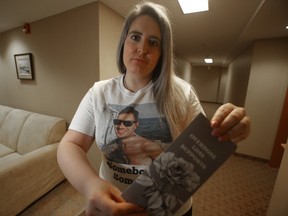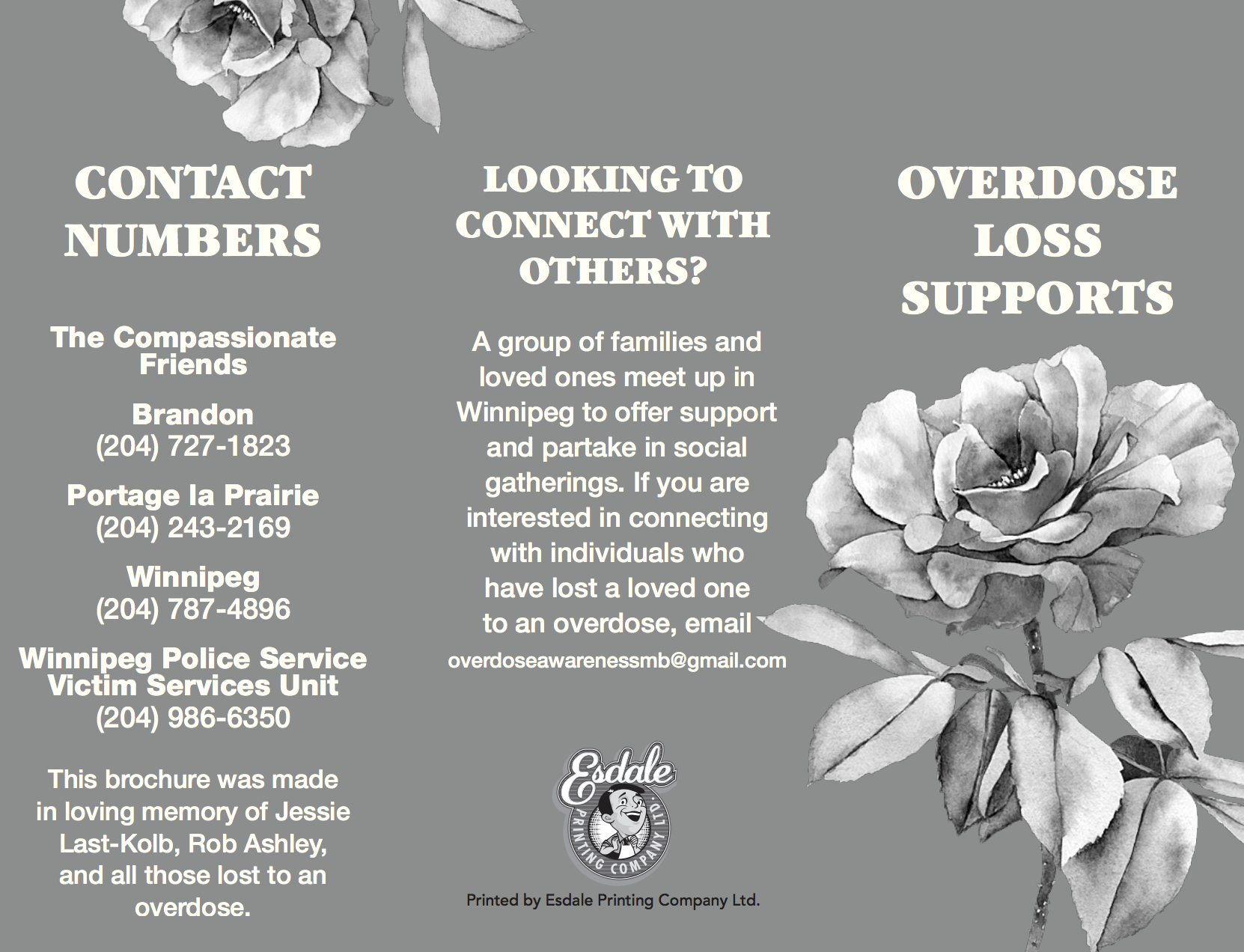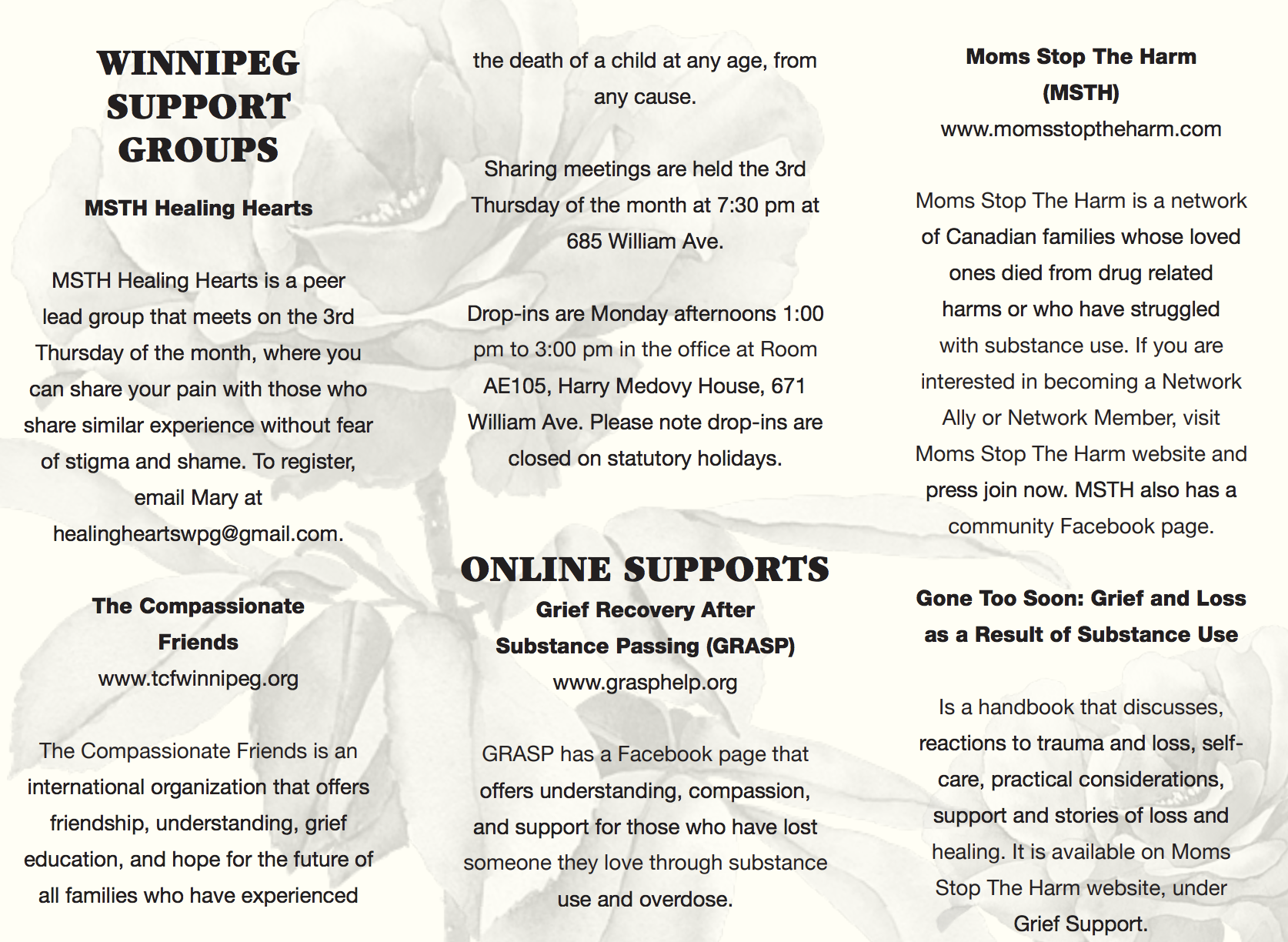Overdose loss brochure aims to help victims' loved ones find support

Article content
When Rebecca Rummery walked out the doors of Grace General Hospital the day her boyfriend died of a drug overdose last January, she didn’t know where to turn.
A few days earlier, she woke up to find Rob Ashley, her boyfriend of a year, unresponsive. He was rushed to hospital and put on life support. On Jan. 14, Ashley, 26, was declared brain dead.
“We weren’t given anything, we just kind of left the hospital and were left to fend for ourselves,” Rummery said.
Rummery reached out to an online support group and met Arlene Last-Kolb, a Winnipeg mother who lost her son Jessie to a fentanyl overdose in 2014, through Rummery’s grandmother.
“This past January, we felt a brochure was a needed resource for people, so we pooled together information on the Winnipeg supports and some online support for people so they know where to turn when this kind of things happens to them,” Rummery, 27, said.
Ashley developed a substance use disorder after he was prescribed prescription painkillers following surgery on his elbow a few years earlier.
He went out of province for treatment but relapsed when he returned to Winnipeg.
The double-sided brochure, which is already available at Concordia Hospital and other services such as funeral homes, has contact information for The Compassionate Friends, the Winnipeg Police Service Victim Services Unit, Moms Stop the Harm Healing Hearts (MSTH) and Grief Recovery After Substance Passing (GRASP).
Each of the groups offer something different, whether that be group meetings on more one-on-one support.
Rummery, who developed post-traumatic stress disorder following Ashley’s death, said it’s important to have options for those who are grieving.
“Everybody wants something different out of that process,” said Rummery, who runs Overdose Awareness Manitoba. “For my standpoint, because I am so young, a lot of the people in the groups are parents. So the thing I found, I accessed GRASP. It’s all over the world and I’ve partnered with people who have lost their boyfriends or spouses.
“A lot of people don’t stop and come forward. For me, I’m the only person who I’ve connected with that’s lost their boyfriend.”
On Thursday, the Winnipeg Regional Health Authority applauded the efforts made by Rummery and Last-Kolb.
“The health authority can help facilitate the process of determining which community-produced resource materials are stocked and distributed in Winnipeg facilities, in conjunction with the sites themselves,” a WRHA spokesperson said. “Each decision is made on a case-by-case basis after reviewing the materials to ensure they are clinically accurate and appropriate for public distribution.
“In this case, the publication’s creators have been in contact with WRHA to facilitate this process, and we have been working with them to connect with our sites, including at least one of our facilities that has already shown an interest in the resource. We acknowledge the efforts of the pamphlet’s creators and wish them success with their project.”
sbilleck@postmedia.com
Twitter: @scottbilleck













Postmedia is committed to maintaining a lively but civil forum for discussion. Please keep comments relevant and respectful. Comments may take up to an hour to appear on the site. You will receive an email if there is a reply to your comment, an update to a thread you follow or if a user you follow comments. Visit our Community Guidelines for more information.